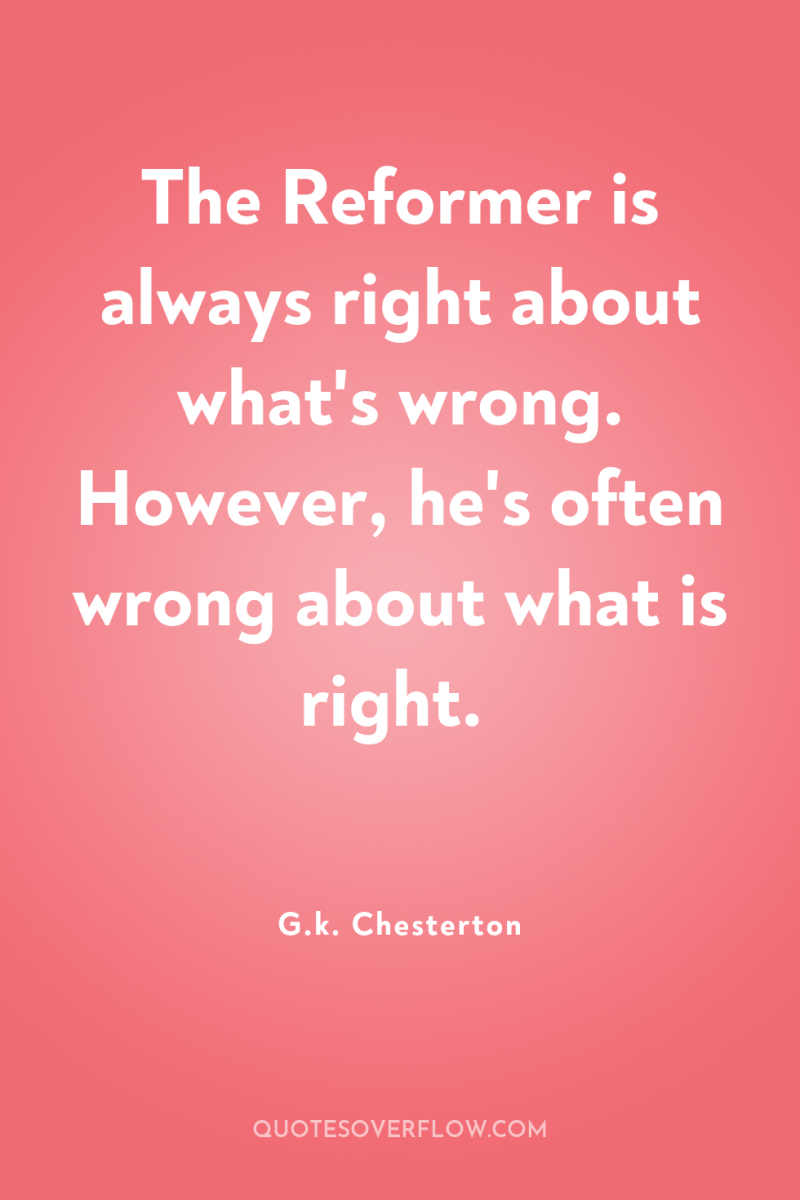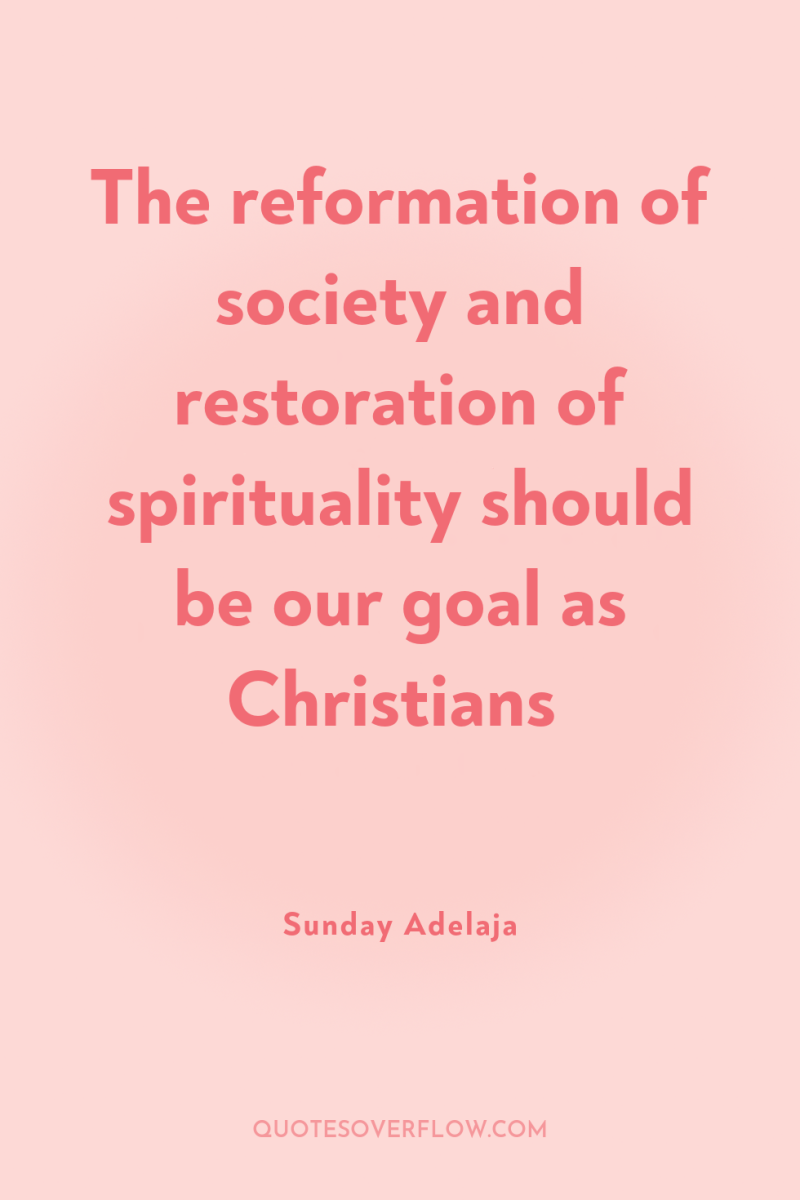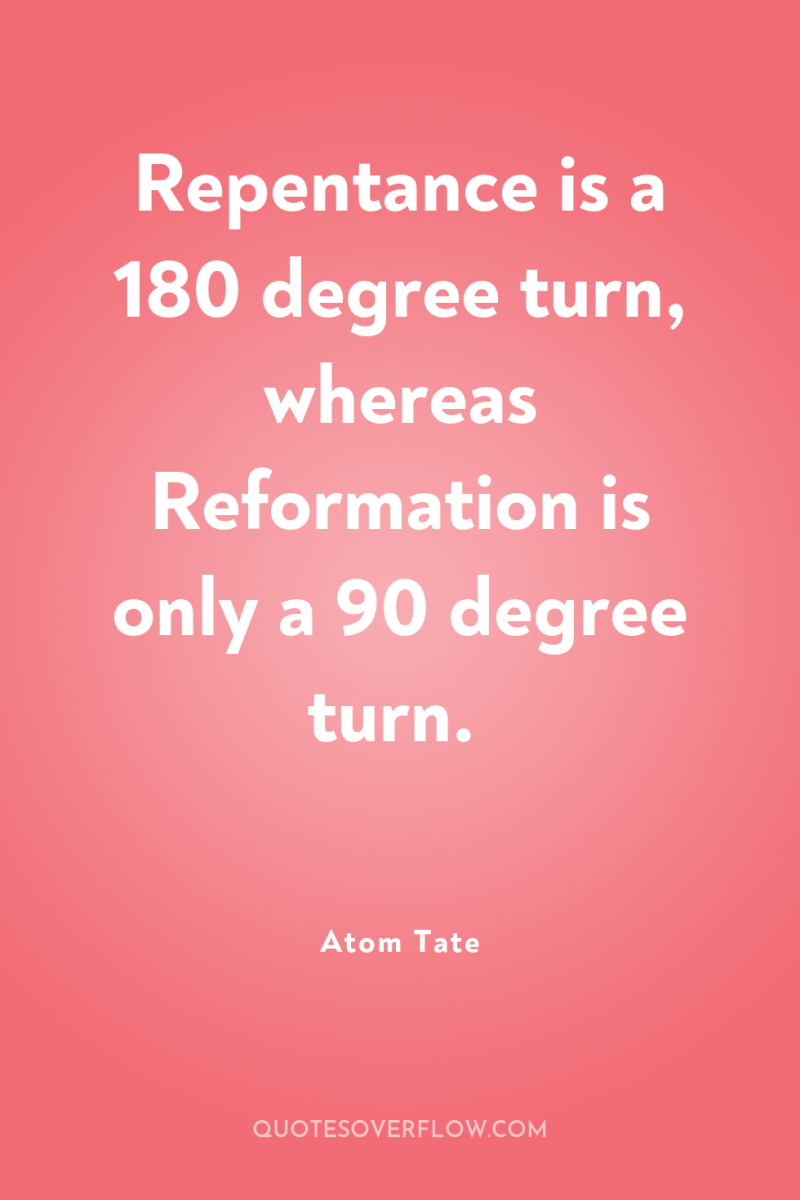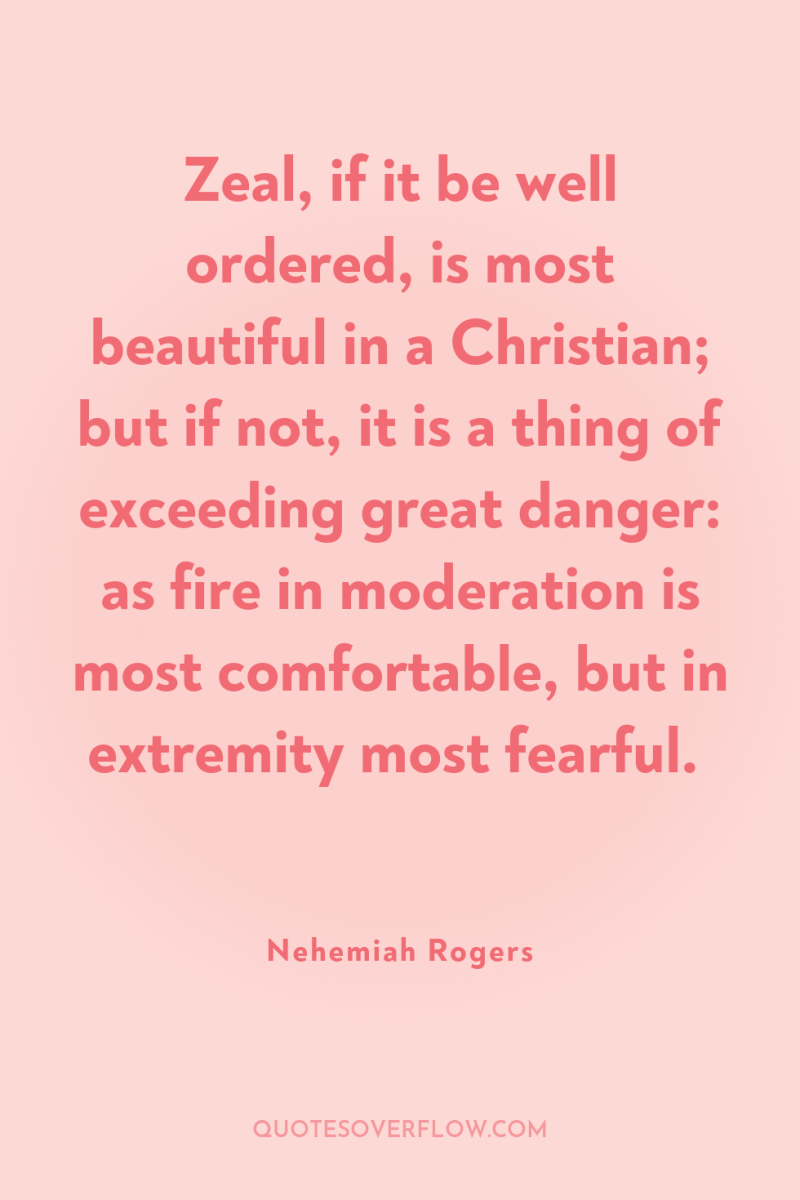1
Since then your sere Majesty and your Lordships seek a simple answer, I will give it in this manner, neither horned nor toothed. Unless I am convinced by the testimony of the Scriptures or by clear reason (for I do not trust either in the pope or in councils alone, since it is well known that they have often erred and contradicted themselves), I am bound by the Scriptures I have quoted and my conscience is captive to the Word of God. I cannot and I will not recant anything, since it is neither safe nor right to go against conscience. May God help me. Amen.", April 18, 1521) .Martin Luther
2
Lo! my God, without merit on my part, of His pure and free mercy, has given to me (an unworthy, condemned, and contemptible creature) all the riches of justification and salvation in Christ.For such a Father then, who has overwhelmed me with these inestimable riches of His, why should I not freely, cheerfully, with my whole heart and with an eager will, do all that I know will be pleasing to Him, and acceptable in His sight? I will therefore give myself, as a sort of Christ, to my neighbor, as Christ has given Himself to me; and will do nothing in this life, except what I see will be needful, advantageous, and wholesome for my neighbor, since by faith I abound in all good things in Christ.Martin Luther
3
Manifest in this trade (commercial sale of indulgences via bankers) at the same time was a pernicious tendency in the Roman Catholic system, for the trade in indulgences was not an excess or an abuse but the direct consequence of the nomistic degradation of the gospel. That the Reformation started with Luther’s protest against this traffic in indulgences proves its religious origin and evangelical character. At issue here was nothing less than the essential character of the gospel, the core of Christianity, the nature of true piety. And Luther was the man who, guided by experience in the life of his own soul, again made people understand the original and true meaning of the gospel of Christ. Like the “righteousness of God, ” so the term “penitence” had been for him one of the most bitter words of Holy Scripture. But when from Romans 1:17 he learned to know a “righteousness by faith, ” he also learned “the true manner of penitence.” He then understood that the repentance demanded in Matthew 4:17 had nothing to do with the works of satisfaction required in the Roman institution of confession, but consisted in “a change of mind in true interior contrition” and with all its benefits was itself a fruit of grace. In the first seven of his ninety-five theses and further in his sermon on “Indulgences and Grace” (February 1518), the sermon on “Penitence” (March 1518), and the sermon on the “Sacrament of Penance” (1519), he set forth this meaning of repentance or conversion and developed the glorious thought that the most important part of penitence consists not in private confession (which cannot be found in Scripture) nor in satisfaction (for God forgives sins freely) but in true sorrow over sin, in a solemn resolve to bear the cross of Christ, in a new life, and in the word of absolution, that is, the word of the grace of God in Christ. The penitent arrives at forgiveness of sins, not by making amends (satisfaction) and priestly absolution, but by trusting the word of God, by believing in God’s grace. It is not the sacrament but faith that justifies. In that way Luther came to again put sin and grace in the center of the Christian doctrine of salvation. The forgiveness of sins, that is, justification, does not depend on repentance, which always remains incomplete, but rests in God’s promise and becomes ours by faith alone.Herman Bavinck

4
The Reformer is always right about what's wrong. However, he's often wrong about what is right.G.k. Chesterton
5
Though the Reformation originated with the Lord's fresh move through various reformers, in a rather short time the resulting churches became institutionalized with a mixture of politics, human organization, and hierarchy.Henry Hon
6
..Turn our thoughts, in the next place, to the characters of learned men. The priesthood have, in all ancient nations, nearly monopolized learning. Read over again all the accounts we have of Hindoos, Chaldeans, Persians, Greeks, Romans, Celts, Teutons, we shall find that priests had all the knowledge, and really governed all mankind. Examine Mahometanism, trace Christianity from its first promulgation; knowledge has been almost exclusively confined to the clergy. And, even since the Reformation, when or where has existed a Protestant or dissenting sect who would tolerate a free inquiry? The blackest billingsgate, the most ungentlemanly insolence, the most yahooish brutality is patiently endured, countenanced, propagated, and applauded. But touch a solemn truth in collision with a dogma of a sect, though capable of the clearest proof, and you will soon find you have disturbed a nest, and the hornets will swarm about your legs and hands, and fly into your face and eyes.] .John Adams

7
The reformation of society and restoration of spirituality should be our goal as ChristiansSunday Adelaja
8
They say I am a reformer. They say wrong: for I have long since given up any such chimerical idea, as that of being able to make men happier who are wicked and miserable by prescription. Withdrawing, therefore, from any such Utopian and hopeless attempt, I believed the best thing I could do was, to relieve, where I could, individual distress, and to lighten the chains that villany often imposes on simplicity under the name of law. In this I have done some good, and what else ought a man to do on this earth?.Charlotte Turner Smith

9
Wishes don’t change the world. Only actions will do that job.Israelmore Ayivor
10
For Christians to influence the world with the truth of God's Word requires the recovery of the great Reformation doctrine of vocation. Christians are called to God's service not only in church professions but also in every secular calling. The task of restoring truth to the culture depends largely on our laypeople. To bring back truth, on a practical level, the church must encourage Christians to be not merely consumers of culture but makers of culture. The church needs to cultivate Christian artists, musicians, novelists, filmmakers, journalists, attorneys, teachers, scientists, business executives, and the like, teaching its laypeople the sense in which every secular vocation-including, above all, the callings of husband, wife, and parent--is a sphere of Christian ministry, a way of serving God and neighbor that is grounded in God's truth. Christian laypeople must be encouraged to be leaders in their fields, rather than eager-to-please followers, working from the assumptions of their biblical worldview, not the vapid clichés of pop culture.J. Gresham Machen
11
It is well known that Pentecost reverses Babel. The people who built the tower of Babel sought to make a name, and a unity, for themselves. At Pentecost, God builds his temple, uniting people in Christ. Unity — interpretive agreement and mutual understanding — is, it would appear, something that only God can accomplish. And accomplish it he does, but not in the way we might have expected. Although onlookers thought that the believers who received the Spirit at Pentecost were babbling (Acts 2:13), in fact they were speaking intelligibly in several languages (Acts 2:8-11). Note well: they were all saying the same thing (testifying about Jesus) in different languages. It takes a thousand tongues to say and sing our great Redeemer’s praise. Protestant evangelicalism evidences a Pentecostal plurality: the various Protestant streams testify to Jesus in their own vocabularies, and it takes many languages (i.e. interpretive traditions) to minister the meaning of God’s Word and the fullness of Christ. As the body is made up of many members, so many interpretations may be needed to do justice to the body of the biblical text. Why else are there four Gospels, but that the one story of Jesus was too rich to be told from one perspective only? Could it be that the various Protestant traditions function similarly as witnesses who testify to the same Jesus from different situations and perspectives? .Kevin J. Vanhoozer

12
Repentance is a 180 degree turn, whereas Reformation is only a 90 degree turn.Atom Tate

13
Zeal, if it be well ordered, is most beautiful in a Christian; but if not, it is a thing of exceeding great danger: as fire in moderation is most comfortable, but in extremity most fearful.Nehemiah Rogers
14
Leaders do not conform; they reform. If you conform, you are nurturing mediocrity. If you reform, you are breeding change.Israelmore Ayivor
15
The more we accept the holy gospel of Christ Jesus , the more we know God's grace.Lailah Gifty Akita
16
Truly, these times of ignorance God overlook, but now he commanded all men everywhere to repent." Acts 17: 30Lailah Gifty Akita
17
The second class status of marriage became one of the principal issues in the Reformation. Martin Luther, the Augustinian friar, had barely posted his ninety-five theses on the door of the church in Wittenberg when he took himself a wife.Germaine Greer
18
Since then your sere Majesty and your Lordships seek a simple answer, I will give it in this manner, neither horned nor toothed. Unless I am convinced by the testimony of the Scriptures or by clear reason (for I do not trust either in the pope or in councils alone, since it is well known that they have often erred and contradicted themselves), I am bound by the Scriptures I have quoted and my conscience is captive to the Word of God. I cannot and I will not recant anything, since it is neither safe nor right to go against conscience. May God help me. .Martin Luther
19
If anyone attempted to rule the world by the gospel and to abolish all temporal law and sword on the plea that all are baptized and Christian, and that, according to the gospel, there shall be among them no law or sword - or need for either - pray tell me, friend, what would he be doing? He would be loosing the ropes and chains of the savage wild beasts and letting them bite and mangle everyone, meanwhile insisting that they were harmless, tame, and gentle creatures; but I would have the proof in my wounds. Just so would the wicked under the name of Christian abuse evangelical freedom, carry on their rascality, and insist that they were Christians subject neither to law nor sword, as some are already raving and ranting. To such a one we must say: Certainly it is true that Christians, so far as they themselves are concerned, are subject neither to law nor sword, and have need of neither. But take heed and first fill the world with real Christians before you attempt to rule it in a Christian and evangelical manner. This you will never accomplish; for the world and the masses are and always will be unchristian, even if they are all baptized and Christian in name. Christians are few and far between (as the saying is). Therefore, it is out of the question that there should be a common Christian government over the whole world, or indeed over a single country or any considerable body of people, for the wicked always outnumber the good. Hence, a man who would venture to govern an entire country or the world with the gospel would be like a shepherd who should put together in one fold wolves, lions, eagles, and sheep, and let them mingle freely with one another, saying, “Help yourselves, and be good and peaceful toward one another. The fold is open, there is plenty of food. You need have no fear of dogs and clubs.” The sheep would doubtless keep the peace and allow themselves to be fed and governed peacefully, but they would not live long, nor would one beast survive another. For this reason one must carefully distinguish between these two governments. Both must be permitted to remain; the one to produce righteousness, the other to bring about external peace and prevent evil deeds. Neither one is sufficient in the world without the other. No one can become righteous in the sight of God by means of the temporal government, without Christ's spiritual government. Christ's government does not extend over all men; rather, Christians are always a minority in the midst of non- Christians. Now where temporal government or law alone prevails, there sheer hypocrisy is inevitable, even though the commandments be God's very own. For without the Holy Spirit in the heart no one becomes truly righteous, no matter how fine the works he does. On the other hand, where the spiritual government alone prevails over land and people, there wickedness is given free rein and the door is open for all manner of rascality, for the world as a whole cannot receive or comprehend it.Martin Luther
20
The church and every Christian are individually responsible for the reformation of the countrySunday Adelaja
21
Now I know not anything that will contribute more to the furtherance of this good work than the bringing of family religion more into practice and reputation. Here the reformation must begin.Joel R. Beeke
22
A true leader leads for the sake of love and his knowledge of the path, a bad leader redirects his followers to the path of destruction.Michael Bassey Johnson
23
Is it that we pretend to a reformation? Truly, no: but it may be we are more addicted to Venus than our fathers were. They are two exercises that thwart and hinder one another in their vigor. Lechery weakens our stomach on the one side; and on the other sobriety renders us more spruce and amorous for the exercise of love.Michel De Montaigne
24
God wants the church to become the initiator of the reformation and changes in the societySunday Adelaja
25
May be the power lies in the hands of the one who holds the gun.. so he just presses the trigger whenever the slightest streak of anger passes his mind.. and after a few haunting days he roams freely in the country without fear . and what about the one who faces the wrath and bears the bullets? He leaves a movement behind.. but haven't such movements always been ephemeral? Is death the price you need to pay to open the eyes of those who care but just for a couple of days? .Sanhita Baruah
26
I no longer follow the voices of the sane. I follow the ill because they see farther, feel much more and change what the sane will not. This is the paradox of philosophers---trying to understand mass delusion among great people that have faith and knowledge, yet they can’t graduate from their institutions of religious theology to apply the knowledge they have gained for the shifting of Zion---- from words to action; from comfort to uncomfortable; from self serving to self giving; from competition to supporting; to tradition to unity; from bias to acceptance; from me to us.Shannon L. Alder
27
It is only once we stop taking everything for granted and fully open our hearts to the beauty that surrounds us that we will understand the importance of joining our hands in the construction of a better world for the people of generations to come.Francisco Battiti
28
Beating yourself up over every perceived mistake is the work of an internal abuser who must be restrained and reformed.Bryant McGill
29
If people think honoring pastors means doing everything they say, why don't they honor Jesus the same way?D.R. Silva
30
He advocated that all who follow Jesus are priests, not just the official clergy. Much of what he said made sense, as did his kind manner. But why was he here now? Had this persecuted recluse emerged just to speak to me?David Holdsworth
31
The central thesis of Surnaturel, then, is that, neither in patristic nor in medieval theology, and certainly not in Thomas Aquinas, was the hypothesis ever entertained of a purely natural destiny for human beings, something other than the supernatural and eschatological vision of God. There is only this world, the world in which our nature has been created for a supernatural destiny. Historically, there never was a graceless nature, or a world outside the Christian dispensation. This traditional conception of human nature as always destined for grace-given union with God fell apart between attempts, on the one hand, to secure the sheer gratuitousness of the economy of grace over against the naturalist anthropologies of Renaissance humanism and, on the other hand, resistance to what was perceived by Counter-Reformation Catholics as the Protestant doctrine of the total corruption of human nature by original sin. The Catholic theologians, who sought to protect the supernatural by separating it conceptually from the natural, facilitated the development of the humanism which flowered at the Enlightenment into deism, agnosticism and ultimately atheism. The conception of the autonomous individual for which the philosophers of the Age of Reason were most bitterly criticized by devout Catholics was, de Lubac suggested, invented by Catholic theologians. The philosophers which broke free of Christianity, to develop their own naturalist and deist theologies, had their roots in the anti- Protestant and anti- Renaissance Catholic Scholasticism of the late sixteenth and early seventeenth centuries. .Fergus Kerr
32
Change does not surface when you are not ready to be the catalyst. Your reaction matters, not your inaction.Michael Bassey Johnson
33
I've recovered my tenderness by long looking; I'm a Socrates of small fury. The waves bends with the fish. I'm taught As water teaches stone. Believe me, extremest oriole, I can hear light on a dry day. The world is where we fling it; I'm leaving where I am.Theodore Roethke
34
The essential unity of the formal and material principles of the Reformation lies in the fact that to affirm that Christianity was, formally and materially, solus Christus was perceived by the Reformers ultimately to depend upon the concurrent affirmation that Christ and his benefits could be known sola scriptura.Unknown
35
For the humanists, whatever authority Scripture might possess derived from the original texts in their original languages, rather than from the Vulgate, which was increasingly recognized as unreliable and inaccurate. In that the catholic church continued to insist that the Vulgate was a doctrinally normative translation, a tension inevitably developed between humanist biblical scholarship and catholic theology.. Through immediate access to the original text in the original language, the theologian could wrestle directly with the 'Word of God, ' unhindered by 'filters' of glosses and commentaries that placed the views of previous interpreters between the exegete and the text. For the Reformers, 'sacred philology' provided the key by means of which the theologian could break free from the confines of medieval exegesis and return ad fontes to the title deeds of the Christian faith rather than their medieval expressions, to forge once more the authentic theology of the early church. .Unknown
36
The medieval period based its scriptural exegesis upon the Vulgate translation of the Bible. There was no authorized version of this text, despite the clear need for a standardized text that had been carefully checked against its Hebrew and Greek originals. A number of versions of the text were in circulation, their divergences generally being overlooked. It was not until 1592 than an 'official' version of the text was produced by the church authorities, sensitive to the challenges to the authority of the Vulgate by Renaissance humanist scholars and Protestant theologians. .Unknown
37
Evangelical Christians need to notice.., that the Reformation said 'Scripture Alone' and not 'the Revelation of God in Christ Alone'. If you do not have the view of the Scriptures that the Reformers had, you really have no content in the word 'Christ' - and this is the modern drift in theology. Modern theology uses the word without content because 'Christ' is cut away from the Scriptures. The Reformation followed the teaching of Christ Himself in linking the revelation Christ gave of God to the revelation of the written Scriptures. .Francis A. Schaeffer
38
Churches were never meant to be mental hospitals. They were supposed to be military outposts under orders to storm the gates of hell. Every believer is on active duty and called to serve a higher purpose with the rank of their blessings and talents.Shannon L. Alder
39
..Turn our thoughts, in the next place, to the characters of learned men. The priesthood have, in all ancient nations, nearly monopolized learning. Read over again all the accounts we have of Hindoos, Chaldeans, Persians, Greeks, Romans, Celts, Teutons, we shall find that priests had all the knowledge, and really governed all mankind. Examine Mahometanism, trace Christianity from its first promulgation; knowledge has been almost exclusively confined to the clergy. And, even since the Reformation, when or where has existed a Protestant or dissenting sect who would tolerate a free inquiry? The blackest billingsgate, the most ungentlemanly insolence, the most yahooish brutality is patiently endured, countenanced, propagated, and applauded. But touch a solemn truth in collision with a dogma of a sect, though capable of the clearest proof, and you will soon find you have disturbed a nest, and the hornets will swarm about your legs and hands, and fly into your face and .John Adams
40
This division is not one by religious affiliation, rather it separates the extremists and the peace-loving people. Therefor I'm optimistic: now a humanistic Islam is getting shaken awake. Moderate Islam needs now to finally break cover and explain how to deal with the violence-glorifying parts of the Quran. The (psychological) repression that this has nothing to do with our belief doesn't work anymore. We have to face this challenge.Mouhanad Khorchide
41
To take a side against Rushdie, or to be neutral and evasive about him in the name of some vaguely sensitive ecumenical conscience, is to stand against those who try to incubate a Reformation in the Muslim world.Christopher Hitchens
42
The church should become a place of regeneration and reformationSunday Adelaja
43
The real church is comprised of a long list of "formers" who collectively work together for world reform.Johnnie Dent Jr.
44
We get called dishonoring for pointing out the garbage in the church, yet nobody ever seems to think it's dishonoring that somebody put the garbage there in the first place.D.R. Silva
45
In principle, to be sure, the Reformation idea of the universal priesthood of all believers meant that not only the clergy but also the laity, not only the theologian but also the magistrate, had the capacity to read, understand, and apply the teachings of the Bible. Yet one of the contributions of the sacred philology of the biblical humanists to the Reformation was an insistence that, in practice, often contradicted the notion of the universal priesthood: the Bible had to be understood on the basis of the authentic original text, written in Hebrew and Greek which, most of the time, only clergy and theologians could comprehend properly. Thus the scholarly authority of the Reformation clergy replaced the priestly authority of the medieval clergy.Jaroslav Pelikan
46
In short, an astonishingly broad spectrum of theologies of justification existed in the later medieval period, encompassing practically every option that had not been specifically condemned as heretical by the Council of Carthage. In the absence of any definitive magisterial pronouncement concerning which of these options (or even what range of options) could be considered authentically catholic, it was left to each theologian to reach his own decision in this matter. A self-perpetuating doctrinal pluralism was thus an inevitability.Unknown
47
Here I stand, so help me God, I can do no other. With the greater consciousness of the issues involved comes a lesser assurance that an alternative is possible.Gordon H. Clark
48
Revolution? Really, Ono! The communists want a revolution. We want nothing of the sort. Quite the opposite, in fact. We wish for a restoration.Kazuo Ishiguro
49
Revolutions arise from obstinacy. People are dissatisfied with what they are told and they develop new ideas.Dirk Kurbjuweit
50
The Constitution itself, the DNA of the country, can be altered by the collective will of the people, making America a self-evolving and self-writing program.Bryant McGill
51
The Law saith, Where is thy righteousness, goodness, and satisfaction? The Gospel saith, Christ is thy righteousness, goodness, and satisfaction.Patrick Hamilton
52
Luther’s doctrine of justification depends upon two things: the constant preaching of the wrath of God in the face of sin; and the realization that every Christian is at once righteous and a sinner, thus needing the hammer of the law to terrify and break the sinful conscience.Carl R. Trueman